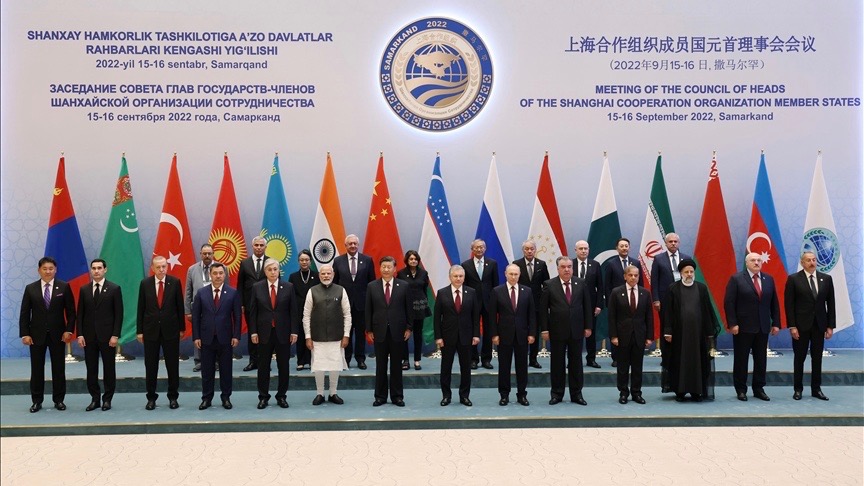Iran signed a Memorandum of Understanding (MoU) to become the ninth full member of the Shanghai Cooperation Organization (SCO) during its two day summit meeting held in Samarkand, Uzbekistan, on September 15 and 16.
Iran applied for full membership of the regional body last year after remaining an observer since 2005. After signing the MoU, Iranian Foreign Minister Hossein Amirabdollahian said that “by signing the document for full membership of the SCO, Iran has entered a new stage of various economic, commercial, transit and energy cooperation,” Press Tv reported.
In the historical city of Samarkand, I signed the memorandum of commitments related to the IR #Iran’s permanent membership of the #Shanghai Cooperation Council (SCO) with the secretary general. pic.twitter.com/xe1Du43PUe
— Iran Foreign Ministry 🇮🇷 (@IRIMFA_EN) September 15, 2022
The formalities of full membership are expected to be completed by April 2023. Through full SCO membership, Iran also hopes to fight the impact of numerous economic and political sanctions imposed on it by the US and its allies. SCO, created in 2001, is the world’s largest regional grouping representing close to 40% of the global population and over 30% the global GDP.
The US led unipolar order is rapidly collapsing and a rising Iran will play a key role in creating the world's emerging geopolitical reality. https://t.co/wz3uRZpva3
— Seyed Mohammad Marandi (@s_m_marandi) September 14, 2022
The US has imposed numerous political and economic sanctions on Iran since the Iranian revolution of 1979. The sanctions were suspended after the signing of the Joint Comprehensive Plan of Action (JCPOA), or the Iran nuclear deal, in 2015. However, they were restored after former US President Donald Trump decided to unilaterally withdraw from the deal in May 2018.
Attempts to revive the deal have been stuck after the International Atomic Energy Agency (IAEA) recently insisted on carrying on with an investigation against Iran despite the country raising objections. Iran has called the IAEA board of governors’ decision to continue with the investigation “politically motivated.” The present Joe Biden administration in the US also imposed fresh sanctions on Iran earlier this week.
On Thursday, Iranian President Ebrahim Raisi said in an interview with Al-Jazeera from Samarkand that the US is not sincere about restoring the JCPOA as it has imposed fresh sanctions on Iran even amid talks.
The economic and political sanctions on Iran have adversely affected its economy and basic services delivery to its citizens, a UN rapporteur’s report noted recently while asking for immediate removal of all unilateral punitive measures.
Challenging the idea of a unipolar world
The summit of the eight-member SCO was attended by the heads of states of Russia, China, India, Kazakhstan, Uzbekistan, Tajikistan, Kyrgyzstan, and Pakistan. It marked the first time that Russian President Vladimir Putin met with Chinese President Xi Jinping since the war in Ukraine started in February this year.
During the meeting, Jinping called for greater cooperation among the SCO members to enhance solidarity and mutual trust through multilateral mechanisms. He has often criticized the “cold-war mentality” of the US and its attempts to pursue a policy promoting a unipolar world.
During his meeting with Jinping, Putin, referring to US policies against China, Iran, and Russia, claimed that “attempts to create a unipolar world have recently acquired an absolutely ugly form are completely unacceptable.”
Putin reiterated the Russian position on Taiwan, saying that it stands for “one China.” He also criticized the “provocations of US and their satellites” in the South China Sea.
Various US politicians, including the speaker of the House of Representative Nancy Pelosi, have visited Taiwan in recent times despite China calling such moves provocative. The US has also decided to supply weapons worth billions of dollars to Taiwan in spite of Chinese objections.
China claims Taiwan to be a part of its territory. Though the US also officially adheres to the “one China” policy recognizing Chinese claims over Taiwan, it has openly pursued policies like supplying weapons to Taiwan, which China claims encourages separatism.





